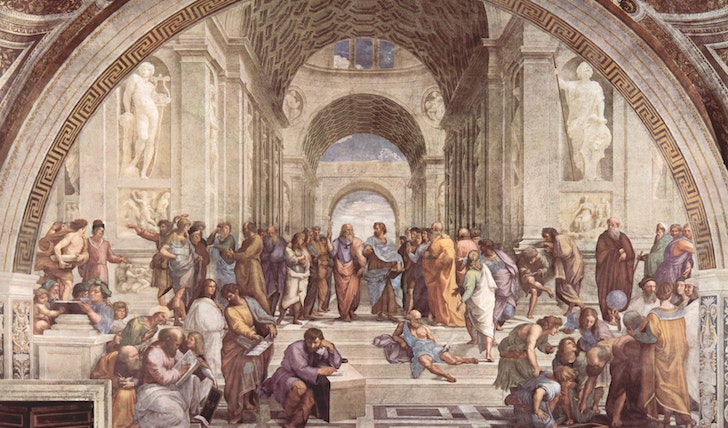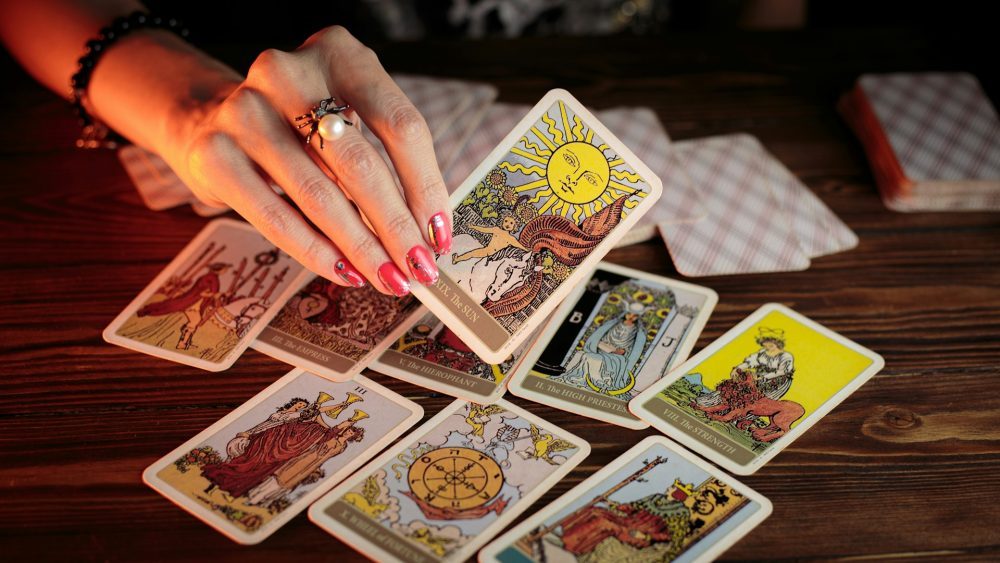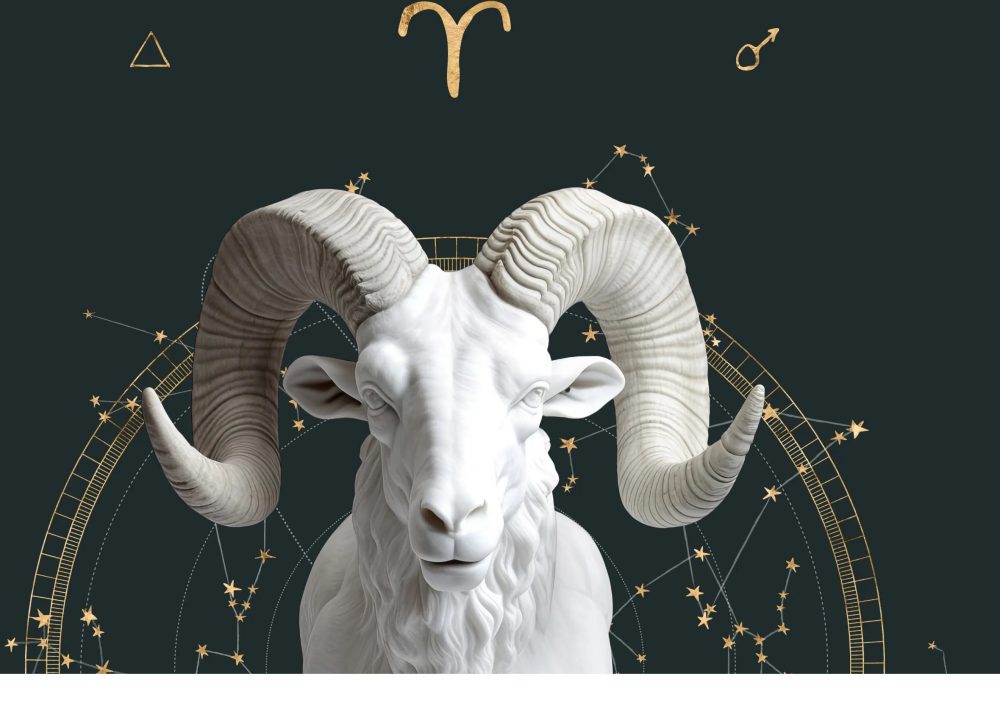Finding true love can often feel like navigating an intricate maze. For those still searching, the astrology of Juno offers intriguing insights into the traits of a potential soulmate. Let’s explore how to find your Juno sign and decode what it reveals about your ideal partner. What Is a Juno Sign in Astrology? In the cosmic landscape, Juno is an asteroid positioned uniquely in each person’s birth chart. It is named after the Roman goddess who presided over marriage and childbirth. In astrology, your Juno sign pinpoints the zodiac sign Juno occupied at your birth. This positioning offers clues about your ideal partner's characteristics, hinting at profound compatibility through celestial alignment. Juno, the Queen of Heaven...
Tarot cards serve as windows to the soul, illuminating paths through symbolic imagery and profound insights. So, what is tarot? Whether you’re a seasoned enthusiast or a curious newcomer, understanding its rich history and how it is used today can enrich your spiritual journey. What Is Tarot? At its core, tarot is a captivating form of guidance utilizing a deck of 78 cards, each bearing unique symbolism and significance. These cards are tools used to delve into the past, present, and future, offering reflections rather than concrete predictions. This reflective nature sets tarot apart from simple fortune-telling. It's not about foreseeing a fixed future but about exploring potential directions and understanding deeper personal truths. Tarot’s appeal...
Have you ever wondered why some people swear by astrology to guide their decisions and understand their personalities? You might be intrigued to find out just how much the stars can tell about you. Astrology, often viewed as a blend of art, spirituality, and psychology, offers insights into not only who you are but also how you relate to the world around you. This guide will help you understand why the Sun Moon rising Venus is a crucial concept in astrology and how it can provide deep insights into your personal identity. What Is Sun Moon Rising Venus? Sun Moon rising Venus refers to four key elements in your astrological birth chart: the Sun sign, Moon...
Have you ever wondered what it really takes to reach a state of complete peace and understanding? In Buddhist philosophy, this state is known as "nirvana"—an ultimate freedom from suffering and a profound realization of the universe's true nature. While the concept may seem elusive, the path to nirvana is well articulated through the teachings of Buddha. Have you been wondering how to reach nirvana? This comprehensive guide will explore the ins and outs of how nirvana works. What Is Nirvana? Nirvana is often described as the ultimate goal of Buddhism, a state where the individual achieves complete liberation from suffering and the continuous cycle of rebirth. It is not just a place or a destination...
In a world filled with challenges and uncertainties, maintaining a positive outlook can sometimes feel like an uphill battle, especially if you are battling depression. However, understanding how to think positive when depressed is not just about making yourself feel better temporarily—it's about developing long-lasting habits that enhance your overall well-being and manage stress effectively. This comprehensive guide delves into positive thinking as a cornerstone of stress management and how you can transform your outlook to reap significant health benefits. What Is Positive Thinking? Positive thinking is not about ignoring reality or glossing over problems. It involves approaching life's challenges with a more optimistic and productive mindset. This means expecting the best to happen, not the...
Navigating the celestial currents of our lives, we often find ourselves at the mercy of cosmic forces beyond our immediate understanding. Among these, the aspect of the Sun Opposition North Node holds profound implications for our personal development and spiritual growth. This guide aims to demystify this aspect, offering insights and strategies for harnessing its challenges as catalysts for enlightenment and fulfillment. Understanding the Sun's Role in Astrology At the heart of astrology, the Sun shines as a beacon of vitality, ego, and the self. It represents our will to live, creative force, and capacity for spontaneity and health. When well-aspected, the Sun imbues individuals with warmth, generosity, and a caring spirit. Conversely, challenges to the...
Astrology in Ancient Rome | A Brief Overview
The era of Ancient Rome was a time of grandeur, toga parties, and horoscopes. That is right! Before your weekly check-in with that trendy astrology app on your phone, the Romans were looking skyward, hoping to decipher the will of the gods.
If you ever wondered how deeply embedded astrology was in ancient cultures, buckle up. Why? Because Rome has quite the tale to share.
Navigating Roman Life Via Astrology
Astrologers were a significant part of society, guiding individuals through life’s milestones. Consulting the stars was paramount before embarking on journeys, military campaigns, or even marriages.
In many ways, astrology became a reassuring voice in an unpredictable world, a sort of ancient life coach. Though the science behind it was still budding, its cultural and psychological influence was undeniable.

Pixabay / Pexels / Back then, ancient Romans believed they got a deeper understanding of the universe, deities, and self by studying the movement of celestial bodies.
Celestial Storytellers
The ancient Romans did not have digital screens to binge-watch the latest series. Instead, they had the night sky, a vast, unending tapestry of twinkling stories and omens. Romans believed they could unlock a deeper understanding of the universe, their deities, and even themselves by studying the movement of celestial bodies like stars, planets, and constellations.
Think of it as the original Netflix: every night, a new episode, every pattern, a new season.
From Babylon to Rome
Now, Rome did not come up with astrology on its own. Like a lot of Roman culture, astrology was adopted and adapted. This cosmic craft originally stemmed from the Babylonians, who were absolute pros at celestial observation.

Carlos / Unsplash / Romans did not ‘invent’ astrology. Instead, they took inspiration from the then-pro astrologers Babylonians and altered it accordingly.
When the Romans got wind of this, especially during the late Republic and Empire periods, they embraced it wholeheartedly. They added their own flair, of course, tying it closely to their religious and socio-political lives.
Gods, Emperors, and Stars
Ever heard of the phrase “born under a lucky star”? The Romans took this literally. Emperors, particularly, were fans of the idea. For example, Augustus, Rome’s first emperor, claimed the constellation Capricorn as his ‘special star,’ tying his fate to its movements.
By aligning themselves with celestial bodies, emperors created a narrative of divine endorsement for their rule.
A Daily Dose of Destiny
For the common Romans, astrology was not just an imperial propaganda tool. The general populace eagerly awaited the predictions and insights brought about by astrologers. There were almanacs predicting everything from agricultural yields to personal fortunes based on the positions and movements of celestial bodies.

Fderica / Pexels / Apart from the ‘pros,’ common Romans also had a deep belief in astrology.
If they wanted to know if it was a good day to ask for a raise (or perhaps a few extra denarii, they turned to the stars of astrology.
Star-Crossed Skeptics
But let’s not imagine every Roman was setting their clocks by the constellations. Just like today, there were skeptics in those times too–philosophers and scientists like Cicero and Pliny the Elder criticized astrology, questioning its accuracy and the motives of its practitioners.
Still, while it had its critics, the allure and magic of astrology were too captivating for many to ignore.











